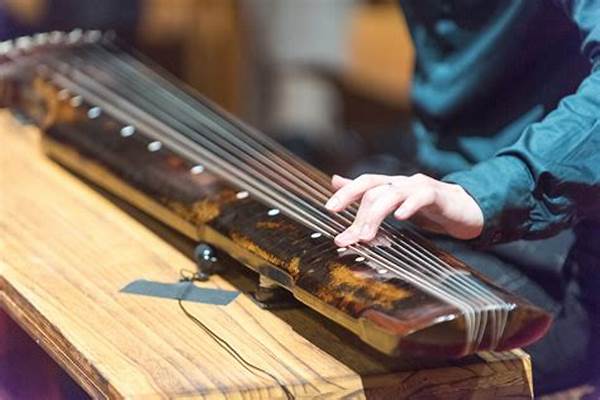In the realm of traditional Chinese music, the guqin stands out as a revered and timeless instrument, cherished deeply by Chinese scholars for centuries. This seven-stringed zither holds not only musical significance but also cultural and philosophical importance, embodying the spirit and wisdom of ancient China. It’s no wonder that the guqin, with its ethereal and emotive sounds, has become a symbol of intellectual pursuits, tranquil reflection, and artistic expression among scholars.
Read More : Diagnostic Instruments Used By General Practitioners
For those captivated by the historical and artistic nuances of instruments, the guqin offers a rich tapestry of stories and significance. Its delicate melodies have been woven into the fabric of Chinese intellectual life, resonating through the corridors of time. Scholars, poets, and artists have hailed this instrument as a muse and confidant, its strings echoing the subtle complexities of the human condition.
The Guqin: An Intellectual’s Companion
When you delve into the world of Chinese traditional music instruments, the guqin emerges as a vessel of philosophy and introspection. Its association with scholars can be traced back to legends where sages and literary figures sought solace and enlightenment through its calming strains. The guqin is not just an instrument; it is a conversation partner for those who think deeply about life’s myriad puzzles.
The Historical Context of the Guqin
The guqin’s roots extend deeply into China’s history, with references found in texts dating back nearly 3,000 years. This speaks volumes about its esteemed presence across various dynasties, where it was revered not just as a musical instrument but as a cultural icon. The guqin was, and still is, considered a touchstone of scholarly refinement, elevating Chinese traditional music to philosophical contemplation.
A Sonic Journey
Listening to a guqin piece is akin to embarking on an auditory journey through time. Every pluck of a string tells a story, each note reverberating with the experiences of those who have played it before. The guqin’s music is not just sound; it is an immersive experience that transports both the listener and the performer to an esoteric realm of thought and feeling—a quality that has endeared it to Chinese scholars throughout history.
Guqin as a Symbol of Scholar Culture
The guqin has been immortalized in paintings, literature, and poetry throughout Chinese history. Its presence in the study rooms of scholars symbolizes a commitment to the pursuit of knowledge and enlightenment. The cultural and intellectual gravitas it holds cannot be overstated, as it continues to be a source of inspiration for many seeking intellectual and spiritual growth.
Understanding the Guqin’s Appeal to Scholars
Let’s break down what makes the guqin such a cornerstone in Chinese scholarly culture:
The Role of Guqin in Modern Times
Despite the rapidly changing world, the guqin remains an emblem of cultural heritage and a bridge to China’s rich intellectual past. Schools dedicated to the guqin are thriving, as are workshops for music enthusiasts eager to connect with this storied instrument.
Read More : Plastic Filling Instrument Enabling Uniform Surface Finishing In Dentistry
How to Learn the Guqin
For those inspired to take on the guqin, modern resources abound. Online courses, books, and teaching studios offer ample opportunities for beginners to tap into this musical tradition. Starting with simple melodies and progressively advancing allows budding musicians to experience the instrument’s calming and enlightening qualities firsthand.
Testimonials from Guqin Practitioners
Many practitioners have shared the transformative impact of learning the guqin. “Playing the guqin gives me a sense of peace and clarity,” shared one user in a recent interview. “It’s like each note unwinds the tangled threads of my thoughts, leaving me with a serene mind.”
Conclusion: Why the Guqin Matters
In summary, the Chinese traditional music instrument guqin beloved by Chinese scholars persists as a timeless artifact, bridging the past and present. To scholars and historians, it offers a portal into a world where music and thought are inseparable. As it continues to capture the hearts and minds of those who engage with it, the guqin remains a central figure in the tapestry of Chinese culture.
The guqin’s legacy endures, embraced not only as an instrument of profound beauty but as an enduring symbol of scholarly devotion. Whether you are a seasoned academic, a budding musician, or simply a curious observer, the guqin invites you to explore its rich legacy, to listen deeply, and to lose yourself in its poetic resonance.
